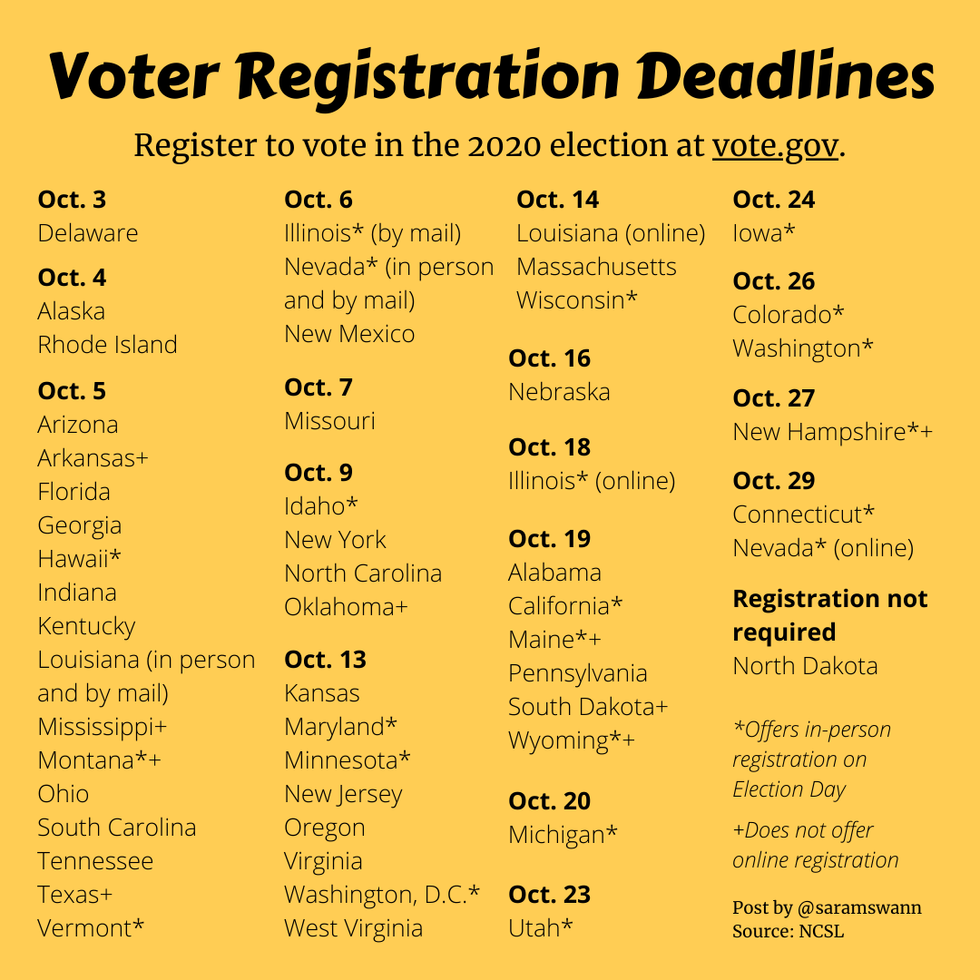1. How do I figure out if I'm registered to vote? Is my information up to date?
Vote.org has a tool that allows you to check your registration. If you're not registered, the site can also help you get that done. But hurry — deadlines are coming up.
2. Speaking of registration deadlines, when is mine?
Graphics for the win! Here you go.

3. I don't need an ID, do I?
Voter ID laws vary by state. Some don't require any ID, others have really strict rules. The National Conference of State Legislatures has pulled together a map of the most recent laws to help you figure out what your state requires and what you'll need to bring to the polls (or send in with your absentee ballot).
4. I want to vote by mail, but I don't know where to start. Help!
Unless you live in a vote-by-mail state, the first place to start is likely by requesting your absentee ballot. Vote411 has broken down each state's vote-by-mail process, including deadlines for requesting your ballot and when it needs to be returned.
5. I'm going to the polls. How do I find my voting location?
Polling places are changing all the time, especially with the coronavirus pandemic. For example, some jurisdictions are switching from polling places to voting centers to make up for shortages in poll workers. Keep up with where to go on Election Day.
6. What are my rights at the polls?
Voters have a number of federally protected rights at the polls. Familiarize yourself with them before you go. Also, write down numbers for election hotlines that can help you if you run into trouble. As a starting place, here are a few things the American Civil Liberties Union lists on their website.



















Trump & Hegseth gave Mark Kelly a huge 2028 gift